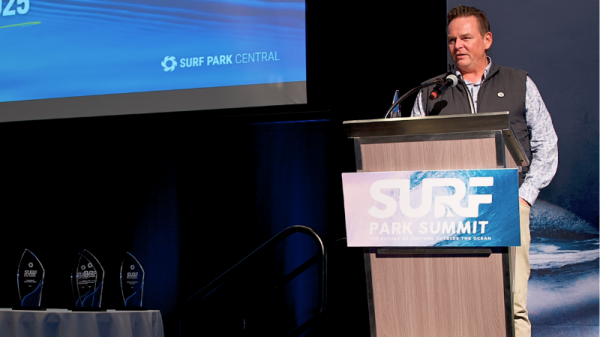The Destruction of Surfing, or the Contradiction of the Surfer
Published on Surf Europe
June 28, 2015
With the first public Wavegarden due to open for business in Wales in a matter of weeks, the man responsible for its creation, Basque Country surfer and engineer Josema Odriozola, shares his thoughts on the ways – both positive and negative – that manmade waves may change surfing and surf culture.
This essay, entitled ‘The Destruction of Surfing, or the Contradiction of the Surfer’, was featured in last weekend’s Surfilm Festibal San Sebastian, as part of the ‘Surf, Civilisation and Barbarism’ exhibition.
Words by Josema Odriozola, Co-Founder of Wavegarden
The creation of perfect waves: the mastery of when, how, and why they break; the process of combining the best bits of the best places we’ve experienced in our surfing lives, and making them our own. When we first surveyed the contemporary landscape of artificial wave creation over 10 years ago, our intellectual property expert was surprised at the number of patents already in existence. He asked me if we were about to embark on the search for the holy grail; meanwhile he was probably thinking what a bunch of dreamers we were.
The ocean, in its infinite and unruly enormity, can never be reproduced, but good waves — up to a certain and by no means inconsiderable size anyway — are a different matter. And now that such manmade waves are becoming a reality, certain questions are arising more than ever. When Surfilm festibal asked us to participate in this exhibition, we thought it would be a good place to consider more closely one or two ideas.
Are the different forms of artificial wave technology sustainable? Obviously technology in itself is neither good nor bad; rather we have to consider the ways in which we use it. The Wavegarden in Wales has been built on the site of an old aluminium factory; the ground on which the factory stood has been decontaminated, its materials have been recycled to form part of the lake, and economic activity, which slowed down following the closure of the factory, will return to the region. Perhaps it’s a fairytale to believe that human development, however innocent it seems, can occur without some kind of damage to the natural world. Where do you stop? Would snowboarders prefer it if ski resorts didn’t exist, for instance? No doubt some of them would, but where do you stop? Without resorts, there would be no snowboarding. And if you take aways the resorts, wouldn’t it be a good idea to take away the roads as well? And after that what about cars, or houses with central heating, or houses altogether?

But the purpose of these reflections is not to identify the perfect point of development, the point at which our civilisation ceases to march towards its own destruction. Nor is it to dwell on the clear contradiction of the surfer who, in his search for nature in its remotest and most perfect form, inevitably brings with him wherever he goes a degree of technology and civilisation, which is to say the very things he’s trying to escape. But we would like to bring to the table another contradiction, perhaps the central one in the life of the surfer: surfers don’t share waves. Not by a fucken’ long shot.
The writer of these words had the good fortune just a short while ago to spend several full days surfing with just his family and no one else at a brilliant peak on the Basque coast that remains curiously uncrowded. It’s the kind of place that is getting harder and harder to find, but it’s still sometimes possible, provided you’re prepared to step off the beaten path — something that comes pretty easily to a lot of surfers. But the beach where I live is possibly one of the most crowded in the world. It physically couldn’t get any worse: the surf schools have filled the seas to the extent that our beloved Iberian squirrel could traverse the length of the line-up jumping from board to board without ever touching the water. And I myself am the very personification of this contradiction, because my children learnt to surf in these schools, and going surfing with them is my favourite thing in the world, and I can no longer do that because there aren’t enough waves to go around for everyone.
So when I hear surfers complaining that artificial waves are going to attract hordes of kooks to our coasts, and I respond by saying how stoked these poor ignorant inland surfers are going to be, I can’t help but smile at the contradiction of the surfer. The contradiction manifests in so many different forms, it’s so intrinsic to the activity of surfing, that I’m not sure we can even start to try and resolve it; and perhaps the only thing we ought to do is live with it and even enjoy it. Our problem is a normal one — we’re talking about the sharing of a limited resource, after all, something for which the human being is not programmed. And the surfer, whatever we may sometimes think, is not a superior breed of human.
The popularisation of surfing is ruining surfing. We try to resist. What should we do? Should we ban surf schools? Should we prevent children from learning to surf? Does the snowboarder who wishes the resorts weren’t there really care about the environment, or is he more concerned about having the slopes to himself? And finally, do those surfers who are lucky enough to live near the coast, and get to enjoy the sea on a fairly regular basis, really have the right to prevent someone who lives further inland from taking up surfing? Even if it’s only in chlorine water, and on waves generated by man rather than by the beautiful randomness of nature?
Written by Josema Odriozola, translated from Spanish by Billy Wilson.
Read the article on Surf Europe here.













1 Comment
You must be logged in to post a comment Login